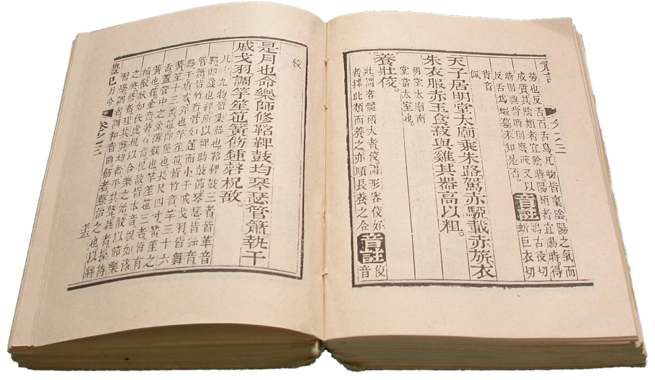
Main Difference
The main difference between Comedy and Farce is that the Comedy is a genre of dramatic works intended to be humorous and Farce is a comedy genre
-
Comedy
In a modern sense, comedy (from the Greek: κωμῳδία, kōmōidía) refers to any discourse or work generally intended to be humorous or amusing by inducing laughter, especially in theatre, television, film, stand-up comedy, or any other medium of entertainment. The origins of the term are found in Ancient Greece. In the Athenian democracy, the public opinion of voters was influenced by the political satire performed by the comic poets at the theaters. The theatrical genre of Greek comedy can be described as a dramatic performance which pits two groups or societies against each other in an amusing agon or conflict. Northrop Frye depicted these two opposing sides as a “Society of Youth” and a “Society of the Old.” A revised view characterizes the essential agon of comedy as a struggle between a relatively powerless youth and the societal conventions that pose obstacles to his hopes. In this struggle, the youth is understood to be constrained by his lack of social authority, and is left with little choice but to take recourse in ruses which engender very dramatic irony which provokes laughter.Satire and political satire use comedy to portray persons or social institutions as ridiculous or corrupt, thus alienating their audience from the object of their humor. Parody subverts popular genres and forms, critiquing those forms without necessarily condemning them.
Other forms of comedy include screwball comedy, which derives its humor largely from bizarre, surprising (and improbable) situations or characters, and black comedy, which is characterized by a form of humor that includes darker aspects of human behavior or human nature. Similarly scatological humor, sexual humor, and race humor create comedy by violating social conventions or taboos in comic ways. A comedy of manners typically takes as its subject a particular part of society (usually upper-class society) and uses humor to parody or satirize the behavior and mannerisms of its members. Romantic comedy is a popular genre that depicts burgeoning romance in humorous terms and focuses on the foibles of those who are falling in love.
-
Farce
In theatre, a farce is a comedy that aims at entertaining the audience through situations that are highly exaggerated, extravagant, and thus improbable. Farce is also characterized by physical humor, the use of deliberate absurdity or nonsense, and broadly stylized performances. It is also often set in one particular location, where all events occur. Farces have been written for the stage and film.
The term farce is derived from the French word for “stuffing”, in reference to improvisations applied by actors to medieval religious dramas. Later forms of this drama were performed as comical interludes during the 15th and 16th centuries. The oldest surviving farce may be Le Garçon et l’aveugle (The Boy and the Blind Man) from after 1266, although the earliest farces that can be dated come from between 1450 and 1550. The best known farce is La Farce de maître Pathelin (The Farce of Master Pathelin) from c. 1460.
-
Comedy (noun)
A choric song of celebration or revel, especially in Ancient Greece.
-
Comedy (noun)
A light, amusing play with a happy ending.
-
Comedy (noun)
A narrative poem with an agreeable ending (e.g., The Divine Comedy).
-
Comedy (noun)
A dramatic work that is light and humorous or satirical in tone.
-
Comedy (noun)
The genre of such works.
-
Comedy (noun)
Entertainment composed of jokes, satire, or humorous performance.
“Why would you be watching comedy when there are kids starving right now?”
-
Comedy (noun)
The art of composing comedy.
-
Comedy (noun)
A humorous event.
-
Farce (noun)
A style of humor marked by broad improbabilities with little regard to regularity or method.
-
Farce (noun)
A motion picture or play featuring this style of humor.
“The farce that we saw last night had us laughing and shaking our heads at the same time.”
-
Farce (noun)
A situation abounding with ludicrous incidents.
“The first month of labor negotiations was a farce.”
-
Farce (noun)
A ridiculous or empty show.
“The political arena is a mere farce, with all sorts of fools trying to grab power.”
-
Farce (verb)
To stuff with forcemeat.
-
Farce (verb)
To fill full; to stuff.
-
Farce (verb)
To make fat.
-
Farce (verb)
To swell out; to render pompous.
-
Comedy (noun)
professional entertainment consisting of jokes and sketches, intended to make an audience laugh
“the show combines theatre with the best of stand-up comedy”
“a cabaret with music, dancing, and comedy”
-
Comedy (noun)
a film, play, or broadcast programme intended to make an audience laugh
“a comedy film”
-
Comedy (noun)
the style or genre represented by comedy films, plays, and broadcast programmes
“the conventions of romantic comedy have grown more appealing with the passage of time”
-
Comedy (noun)
the humorous or amusing aspects of something
“advertising people see the comedy in their work”
-
Comedy (noun)
a play characterized by its humorous or satirical tone and its depiction of amusing people or incidents, in which the characters ultimately triumph over adversity
“Shakespeare’s comedies”
-
Comedy (noun)
the dramatic genre represented by comedies
“satiric comedy”
